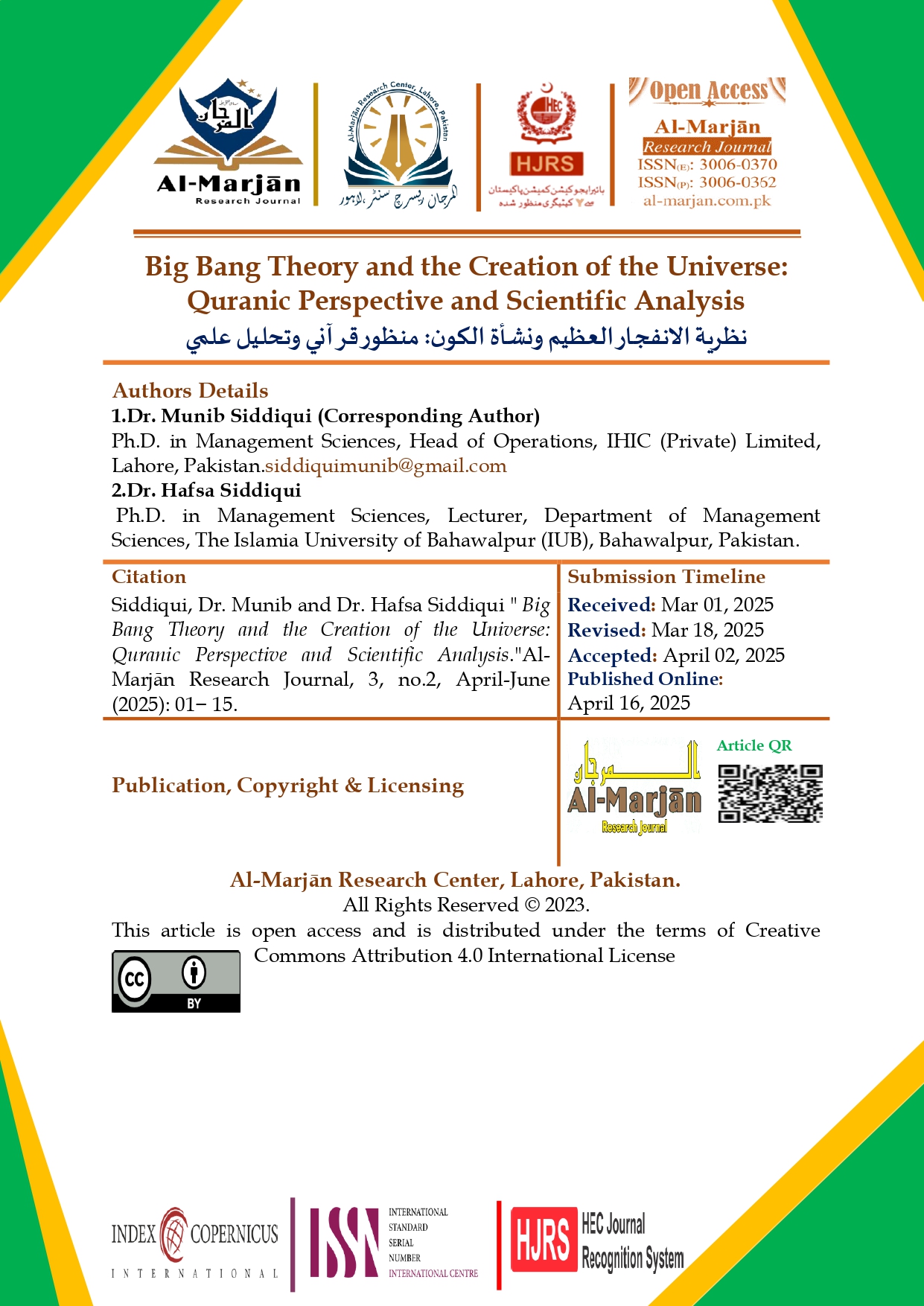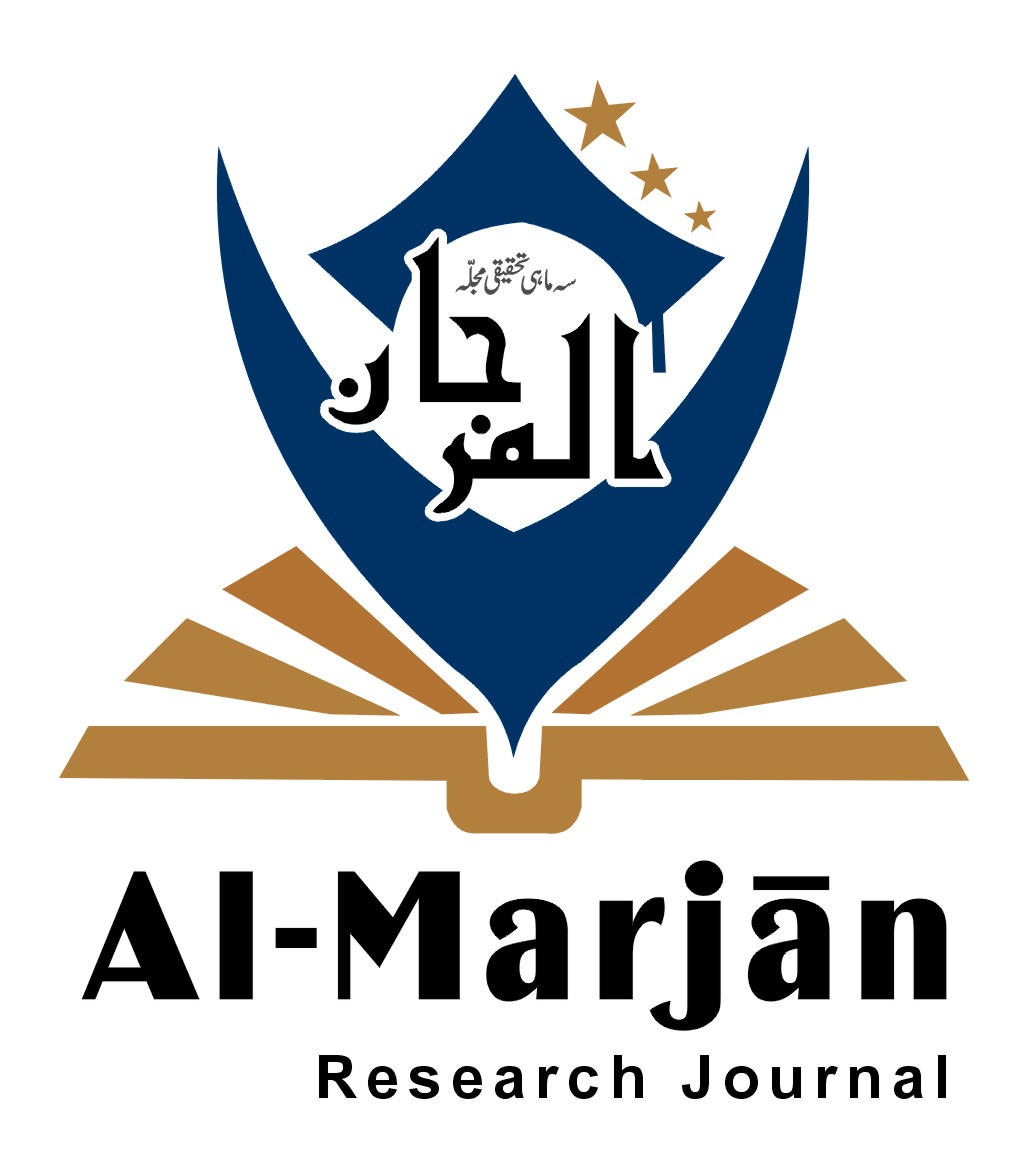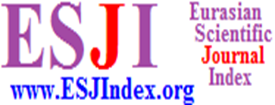Big Bang Theory and the Creation of the Universe: Quranic Perspective and Scientific Analysis
نظرية الانفجار العظيم ونشأة الكون: منظور قرآني وتحليل علمي
DOI:
https://doi.org/10.1234/58v7yk87Keywords:
Big Bang Theory, Cosmology, Theology, Faith-Based Narratives, CosmosAbstract
This paper explores the origins of the universe through a comparative analysis of the Qur'anic worldview and the modern scientific understanding, particularly the Big Bang Theory. The Qur'an, although revealed over 1,400 years ago, contains verses that exhibit a striking congruence with some of the most advanced discoveries in cosmology. Verses such as Surah Al-Anbiya (21:30) state, that the heavens and the earth were a joined entity, then We separated them, which many scholars and scientists have interpreted as an early reference to the concept of cosmic singularity and the subsequent expansion of the universe. Furthermore, Surah Al-Dhariyat (51:47) aligns with Edwin Hubble’s 1929 observation that the universe is continuously expanding, a fundamental component of the Big Bang Theory. Another important reference comes from Surah Fussilat (41:11), where the heavens are described as being in a "smoke" or gaseous state before their formation—concepts that parallel the nebular hypothesis and modern understanding of stellar evolution. This paper examines these verses through a hermeneutic and interdisciplinary lens, considering both classical tafsir (exegesis) and modern astrophysical models. The objective is not to force a scientific reading onto the Qur’an, but rather to explore whether the Qur'anic descriptions are consistent with what contemporary science has revealed about the origins of the cosmos. The analysis reveals that there is a profound compatibility between revelation and reason, suggesting that science and faith need not exist in opposition. The origin of the universe has long intrigued both theologians and scientists. While science attempts to understand the material mechanisms behind the cosmos, religion seeks to address the metaphysical questions of purpose and creation. The focus of this paper is the Big Bang Theory and relevant Quranic verses against a convergence of scientific and Qur'anic perspectives with regards to creation of universe. In fact, it argues that Islamic scripture has no tendency to stop people from searching and exploring the world, but has the tendency to be used in reflection and such searching and causing of contemplation of the natural world. In the end, the goal of this study is to create a worldview that treats faith-based narratives and empirical inquiry as a whole. The paper proposes an integral epistemological program concerning existence by combining traditional Islamic cosmology with modern physics.
Downloads





































